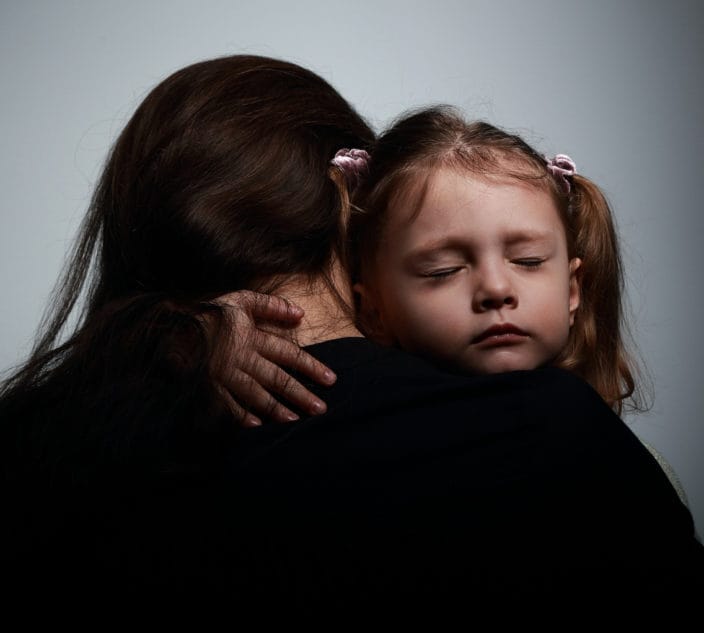
Imagine it: after your or your child’s food allergy diagnosis, you are introduced to a certified allergy nurse educator (ANE). This skilled nurse answers your myriad of questions, and helps you to process this life-altering diagnosis, as well as often coexisting conditions, such as asthma and eczema. This nurse teaches you ways to prevent and manage allergic reactions and anaphylaxis. The ANE would be there as a resource for the next waves of questions that arise – such as how to stay safe at school or work, when socializing, visiting relatives, traveling, dining out and more.
Doesn’t that sound like a dream? As someone who lives with the potential for an anaphylactic reaction, think back to when you or your loved one was diagnosed. Would a certified allergy nurse educator have made a big difference? We predict the answer for most readers will be “yes”.
Many nurses have pioneered work, advocated and published research to improve patient care in fields of allergy and immunology. While there are groups of nurses with allergy as a special interest in the United States, there is no formal role, no certification, and no requirements for nurses to continue their professional development in allergy and immunology.
Expert nurses with advanced training are called upon in many areas of health care to provide education and guidance to patients and their caregivers. For instance, there are certified diabetes nurse educators who provide education, support, and advocacy for those living with diabetes. There are advanced nurse lactation consultants to assist mothers learning how to breastfeed their babies. An oncology certified nurse is considered an expert in that field, helping patients from diagnosis through treatment. These roles in nursing improve patient and caregiver outcomes.
What about people living with allergies and the potential for anaphylaxis? Don’t they also need a nurse educator to help them manage their medical condition that requires careful attention in daily living?
The authors of this article are members of the Food Allergy Nurse Interest Group (FANI), formed in late 2019. We are registered nurses (RN) and advanced practice registered nurses (APRN) from across the country who have personal and professional experiences with food allergies and their related conditions. The latter include asthma, eczema and eosinophilic esophagitis (EoE). We are exploring the possibility of this innovative role for nurses in America, similar to nurses in Australia, who can obtain a certification in allergy.
Certified Nurse’s Role in Key Questions
Thinking back to your first experience with food allergies, you may have waited weeks or months to see an allergist. Once the diagnosis was confirmed, you were most likely presented with the following plan. First, how to prevent a food-allergic reaction by strictly avoiding your food allergen(s). Second, how to respond to an allergic reaction by learning about your newly prescribed epinephrine auto-injector and following your anaphylaxis emergency action plan.
Many people have then left the allergist’s office feeling overwhelmed and uncertain about how to proceed with life’s most routine activities. If you have felt this way, you are not alone! We understand the immense sense of loss, uncertainty, isolation, fear, and sometimes even denial people with food allergies and their caregivers experience when diagnosed with this chronic condition.
A certified ANE would address your concerns of being unprepared to cope with this life-changing diagnosis. They can respond to your many unanswered questions, such as:
“How am I going to do this?”
“How do I safely feed myself or my child?
“Where do I locate safe foods?”
“How will I navigate daycare, school, college, or the workplace?”
“How can we travel, or continue our social gatherings and cultural celebrations?”
“Will people think I am crazy?”
“How do I balance work and my child’s safety needs?”
“Will my child be included or bullied because of their diet limitations?
“Where else can food allergens hide? (Hint: medicines, cosmetic items, art supplies, pet foods.)
“Can I prevent my other children from developing food allergies?”
“Will I be able to afford medical appointments, medications and specialized foods?”
“Are there any treatment options or therapies?”
The struggle is real! However, with support and the right skill set, people with food allergies can adapt their routines and enjoy safe and fulfilling lives. A registered nurse, certified in food allergy care, would be a wonderful guide.
Certified ANE: Best-Suited to the Job
Why is a certified allergy nurse educator best-suited for this role? Food allergies impact all aspects of life and the ability to fully function in society. Registered nurses are trained to assess, educate, evaluate, advocate, and serve as community resources. With additional training and certification in allergy and immunology, nurses can provide tailored care to meet the needs of this growing patient population.
Many people with food allergies encounter a lack of food allergy awareness when hospitalized. Difficulties are often experienced when sending a child to daycare or school. A certified allergy nurse educator could also serve as an educator for nurses and staff working in schools and hospital systems, further meeting the needs of this population and improving patient safety.
New and exciting research is changing the landscape of food allergy care, including food allergy prevention, management, and treatment. Infant feeding guidelines have changed to help prevent the development of food allergies in babies, including those at higher risk to develop food allergies. There is research in infant skin care and its possible role in either food allergy development or prevention.
Allergen-specific immunotherapy, such as food oral immunotherapy (OIT) and sublingual immunotherapy (SLIT), are being offered in more practices. Patients undergoing these therapies, as well as their caregivers, are going to need support and education. A certified ANE would help with self-care skills for conditions that often coexist with asthma and allergies. Also, there are less understood conditions like eosinophilic esophagitis (EOE) and food protein induced enterocolitis (FPIES) that require attention and referrals. It is evident, patients and their caregivers need ongoing support and education to manage daily life.
We believe allergists would welcome a certified allergy nurse educator to their practice, knowing they could share the responsibility for educating patients and their caregivers. These nurses can also serve as a community resources in places like schools, camps, restaurants and hospitals. A certified allergy nurse educator can coordinate additional services to meet the mental health and nutritional needs of this population. As a result of this new role for nurses, we believe people with food allergies and their caregivers will benefit from increased accessibility to health-care professionals, more personalized care, and an enhanced experience.
Finally, this innovative role has the potential to improve health-care outcomes as seen in other specialties, such as diabetes, oncology, and lactation. The next time you see your allergist ask, “Do you have a certified allergy nurse educator who could help me with my food allergies?” Please join us in support of our mission!
Food Allergy Nursing Interest Group (FANI):
Susan Kelly, BSN, RN, MPHc
Olga Kagan, PhD, RN, CIMI
Josie Howard-Ruben, PhD, APRN-CNS, AOCN
Julianne Doucette, DNP, APRN, CPNP
Kimberly Weiss, MSN, RN, FNP-C
Laura Koo, PhD, CRNP, FNP-BC
Alena Bolten, BSN, RN
Carolyn D’Amato, BSN, RN
Visit the new FANI website (in progress) at Allergynurseeducators.com. Plus, take our ANE survey here.
Related Reading:
Nursing Experts’ OpEd on Import of ACA Provisions to Those with Food Allergies
Nurse Perspectives on School Food Allergy Policies
A Nurse Driven to Improve Food Allergy Education
Beyond Avoidance: the Psychosocial Impact of Food Allergies
Food Allergies and Hospitals: A Lack of Training and Systems
Quality of Life in Food Allergy Patients and Their Families





